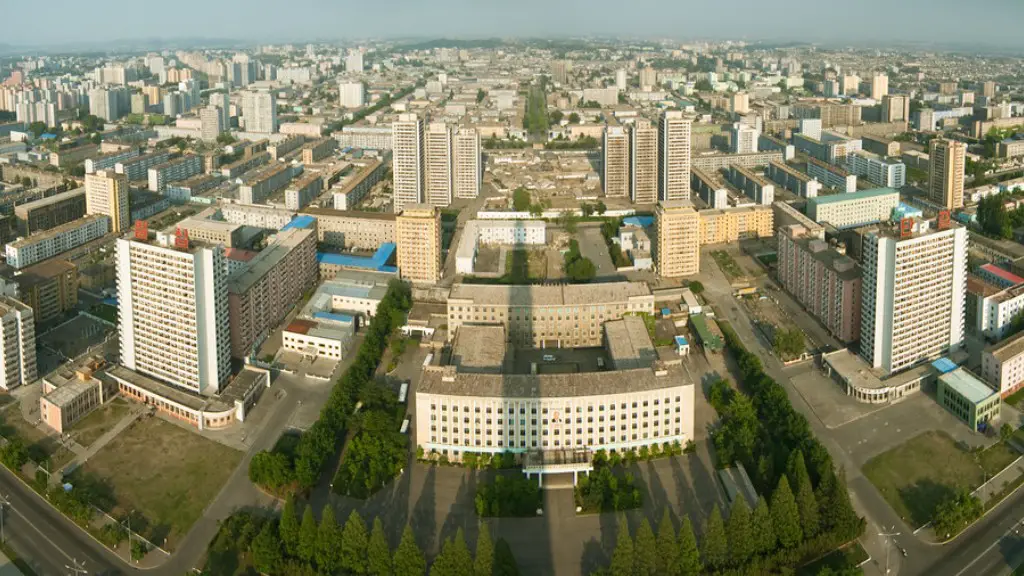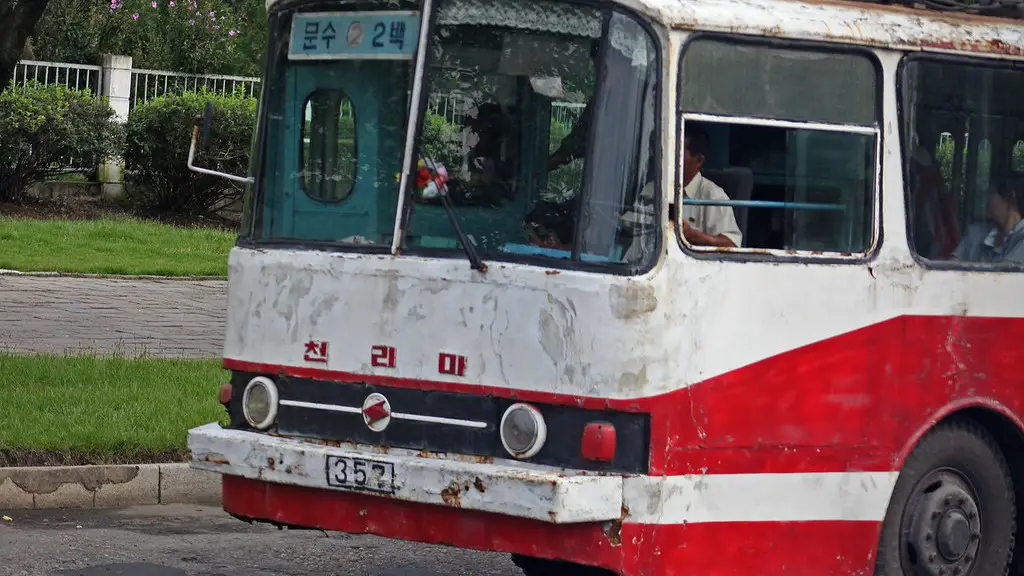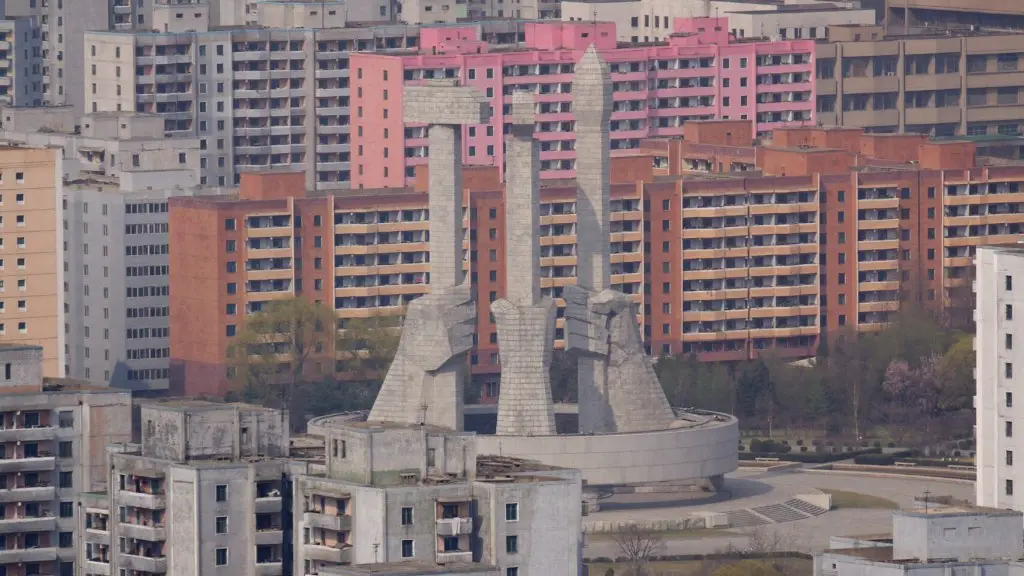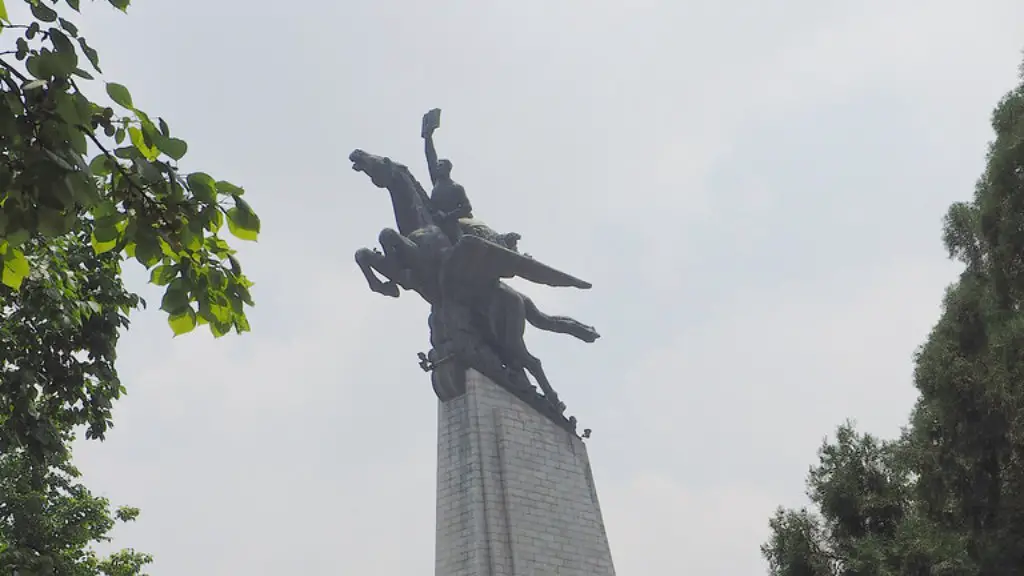Citizens of North Korea are among the least free in the world – unable to leave the country without permission, facing severe restrictions on freedom of expression. For decades, North Koreans have been unable to take advantage of most of the basic rights that are enjoyed in many other parts of the world, including the right to leave their country. But what exactly do the laws of North Korea actually say about leaving the country?
Freedom of movement is severely restricted in North Korea, with citizens only allowed to leave the country if they are part of an official delegation. All travelers must obtain permission from the state before they are allowed to leave.
All citizens of North Korea have to have a “exit permit” in their passport if they wish to travel abroad. This permit is granted at the discretion of the government and can be revoked at any time. The only way to get a permit is to have a “state-sanctioned excuse” for traveling. These excuses include traveling for business, education, or official state duties.
However, even if a North Korean is able to obtain an exit permit, they may still face difficulty in actually leaving the country. For example, the government often requires defector applicants to fill out a detailed form that includes questions about their reasons for leaving, how much money they are planning to take with them, and how many family members will be accompanying them. The government can also impose restrictions on how much money a family can take with them, which becomes particularly difficult for those who have close relatives or friends in other countries and wish to visit them.
The restrictions on leaving North Korea are increasingly difficult for the country’s citizens, as it has become increasingly isolated from the rest of the world. North Korea’s closed borders make it hard for citizens to connect with the outside world, severely limiting the availability of information and opportunities that could prove beneficial to citizens. For example, North Koreans may not be able to access important medical treatments or educational opportunities that exist in other countries and that could potentially improve their quality of life.
Despite this, some North Koreans have managed to illegally cross the border into neighboring countries and seek asylum. These escapees, who risk their lives in their attempt to flee, often rely on the help of human traffickers and other forms of organized crime in order to successfully leave. Sadly, in some cases, these escapees are caught and harshly punished.
Rights of North Korean Refugees
The United Nations has long been pressing for North Korea to abide by international human rights norms and lift travel restrictions for its citizens. It has also urged states to grant North Korean refugees asylum and provide them with adequate safety and protection.
North Korean refugees can find asylum in some countries. South Korea and the United States, for example, have both accepted some North Korean refugees. South Korea has an official resettlement program for North Korean refugees, and the US has a special visa program to help North Koreans who have a “well-founded fear of persecution” in their home country.
These programs make it easier for North Koreans to leave the country, but they do not make it easy. North Koreans who want to find safety and a better life outside of their home country still face a long and dangerous journey, as well as discrimination and other problems when they reach their destination.
Life After North Korea
After leaving North Korea, refugees often struggle to adjust to their new lives. They have to find employment, learn new languages and customs, and start new relationships. This transition can be extremely difficult for North Koreans who have never experienced life outside of their homeland.
North Koreans who have resettled outside of their home country have spoken out about the difficulties they faced in the transition. Some of the most common challenges are stigma and prejudice, bureaucratic differences between countries, and the high cost of living. North Koreans also have to cope with the trauma of leaving behind their homes, families, and friends.
Although refugees face many obstacles and challenges, they are able to find hope and strength in their new lives. Many North Korean refugees have spoken out about how they were able to build successful, independent lives in their new homes and even raise families.
International Aid and Support
Many organizations around the world are dedicated to helping North Korean refugees adapt to their new lives. The International Rescue Committee, the United Nations Refugee Agency, and the Korean American Community Foundation are some of the organizations that provide medical, housing, education, and job assistance to North Koreans who have escaped their home country.
These organizations provide critical services to refugees and can make a huge difference in their lives, but they are also often limited by funding and resources. In addition, some countries are hesitant to support North Korean refugees due to the fear of antagonizing the North Korean government.
International Response to North Korean Crisis
North Korea’s restrictive systems are increasingly in the spotlight as the international community takes action in order to help those suffering inside the country. In recent years, several world leaders have spoken out about the need for greater focus on human rights in the region, and organizations such as Human Rights Watch, Amnesty International, and the United Nations have condemned North Korea’s human rights abuses.
The international community has also taken steps to push for greater protection of North Korean citizens by imposing sanctions on the country and by putting pressure on the North Korean government to end its oppressive policies. In 2018, the United Nations Security Council unanimously condemned North Korea’s human rights violations, passing a resolution that demanded the government make meaningful changes in order to protect the rights of its citizens.
The resolution was a rare sign of international unity in addressing the humanitarian crisis in North Korea. However, for the situation inside the country to truly improve, much more must be done to ensure that North Koreans are granted the same basic rights and freedoms as those living in other countries.
North Korea’s Changing Political Landscape
In recent years North Korea has seen a shift in both its internal and international political landscape. Factions within North Korea’s ruling party have begun to push for reforms and change, including easing travel restrictions and expanding civil liberties.
Additionally, North Korea has become increasingly engaged in international relations, with Kim Jong Un opening up the country to foreign dignitaries and world leaders. This diplomatic activity has been seen as a positive step forward for human rights in the region, as it could open doors for increased dialogue between North Korea and the international community. It could also pave the way for increased access to resources and aid, which could help thousands of North Koreans living in poverty.
North Korea is in the early stages of taking steps towards improving the human rights of its citizens. However, for meaningful progress to be achieved, much more work needs to be done by both the North Korean government and the international community.
Citizen Controlled Social Media
The increasing use of social media has had a direct effect on North Korean society, providing both a digital platform for dissent and a tool to access the outside world. Although the North Korean government has made every effort to prevent its people from accessing the internet, it is slowly becoming more accessible, with a growing population of North Koreans able to access the internet and social media platforms.
Companies such as Free North Korea Radio, which provide uncensored information to North Korean citizens, have been able to leverage social media platforms to reach those living inside the country. By providing access to information that is not readily available in North Korea, the organisation has been able to help inform and empower North Korean citizens.
Furthermore, activists inside North Korea have been able to use social media to share their stories and experiences. By using social media, these activists have been able to express their dissent and help to bring attention to the oppressive conditions inside North Korea.
Social media has also provided an outlet for North Koreans to connect with family members who have left the country, offering the potential for reunification. Although the North Korean government is wary of the rise of social media, it may ultimately prove beneficial to those living inside the country.





